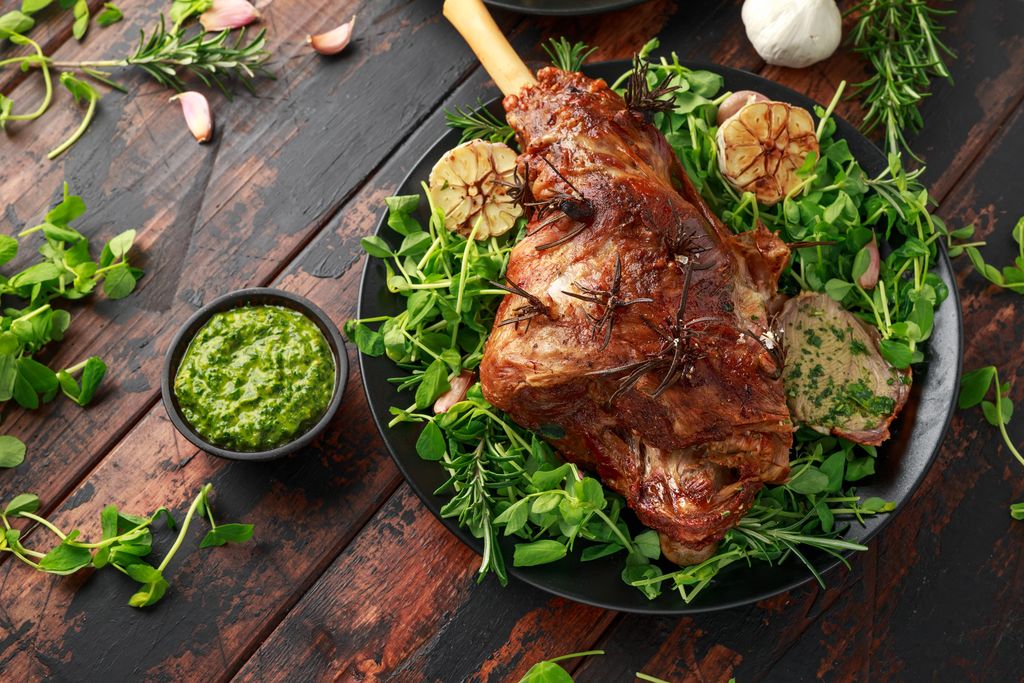Few culinary experiences are as instantly evocative as the aroma of lamb. Long before the first bite reaches the palate, its fragrance creates anticipation, stirring memories and sparking appetite. Unlike the comparatively neutral aroma of chicken or the robust smokiness of beef, lamb carries with it a distinct olfactory signature, a mingling of earthy, grassy, and subtly sweet notes that immediately set it apart. Superior Farms lamb this sensory allure isn’t mere happenstance; it’s the result of fascinating chemistry, deeply ingrained cultural associations, and the way scent shapes our emotions and desires.
The Science Behind the Scent
At the heart of lamb’s irresistible aroma lies a unique blend of volatile compounds. One of the most important contributors is a fatty acid called branched-chain fatty acids (BCFAs), specifically 4-methyloctanoic acid and 4-methylnonanoic acid. These molecules are rare in most other meats, yet they are abundant in lamb, particularly in cuts with a higher fat content. When lamb is cooked, heat transforms these compounds into aromatic molecules that intensify its signature scent.
This chemistry explains why lamb smells different from beef or pork, even if prepared with the same seasonings or cooking techniques. The very structure of these fatty acids produces the slightly gamey, grassy aroma that lamb lovers find so enticing. Interestingly, lamb raised on pasture diets rich in clover, grasses, and herbs tends to develop even more complex aromas, as those plant compounds integrate into the fat and later release during cooking.
The Emotional Power of Smell
While the science explains what makes lamb smell the way it does, the magic lies in how that aroma affects us. Smell is the most primal of our senses, directly tied to the limbic system, the part of the brain responsible for memory and emotion. A whiff of roasting lamb can transport someone back to a family gathering, a holiday feast, or even a cultural celebration where the meat holds symbolic meaning.
This connection between smell and memory is why lamb’s aroma is often described as comforting, nostalgic, or even celebratory. The scent doesn’t just signal that food is near, it triggers an emotional response, stirring feelings of warmth, belonging, and indulgence. For many, it is the smell of hospitality itself, rising from kitchens during Easter, Passover, Eid, or Sunday roasts shared with loved ones.
Appetite Appeal: Why Lamb Smells So Delicious
Beyond nostalgia, lamb’s aroma has a direct physiological impact on appetite. Studies show that certain volatile compounds, especially those released during roasting or grilling, stimulate salivation and increase hunger. The rich smell of lamb browning in a pan or caramelizing over an open flame is a sensory cue that food is not only cooking but transforming, its fat rendering, its proteins forming savory crusts, its herbs and spices merging into a symphony of scent.
In contrast to the mildness of chicken or the heavier scent of beef, lamb strikes a captivating middle ground. Its fragrance is strong enough to make an impression, yet layered with nuance, earthy, grassy, slightly sweet, and deeply savory. This complexity is why even a small amount of lamb can perfume an entire kitchen, creating anticipation that borders on irresistible.
Cultural Associations and Rituals
Lamb’s aroma also resonates because of the contexts in which it’s most often enjoyed. Across cultures, lamb is tied to tradition and celebration. In the Middle East and Mediterranean, the fragrance of lamb roasted with rosemary, garlic, or cumin is a fixture of communal feasts. In Greece, the scent of lamb spit-roasting at Easter is as symbolic as the holiday itself. In South Asia, the warm, spiced aroma of lamb curry signals festivity and abundance.
Because lamb is less commonly eaten in many regions compared to chicken or beef, its scent often signals a special occasion. That rarity heightens its appeal, the smell of lamb doesn’t just promise a meal, but a moment to savor. It becomes a sensory marker of festivity, making its fragrance all the more emotionally charged.
Pairings That Amplify the Aroma
Another reason lamb’s scent captivates the senses is how beautifully it harmonizes with aromatic herbs and spices. Rosemary and thyme accentuate its earthiness, mint provides a refreshing contrast, and spices like cumin, coriander, and cinnamon add layers of warmth. When lamb is roasted with garlic or slow-braised with wine, the resulting aroma is greater than the sum of its parts, rich, complex, and lingering in the air long after the cooking ends.
These complementary aromas amplify lamb’s natural fragrance, creating an olfactory experience that feels luxurious and immersive. It is no coincidence that so many traditional recipes across cultures focus on herbs and spices that heighten lamb’s aromatic qualities.
Why We Keep Coming Back to It
Ultimately, lamb’s aroma captivates because it engages us on multiple levels at once:
- Biological: Its unique fatty acids release compounds that our noses instantly recognize as distinct and savory.
- Emotional: The smell of lamb is interwoven with memory, tradition, and celebration, making it a powerful trigger for nostalgia.
- Physiological: The compounds stimulate appetite and prepare our bodies for the act of eating.
- Cultural: Its association with rituals, holidays, and hospitality magnifies its significance.
The result is an aroma that is more than a prelude to flavor, it is an experience in its own right.
An Aroma That Defines the Meal
The aroma of lamb is not an incidental byproduct of cooking, it is one of the defining features of the meat itself. Rooted in distinctive chemistry, amplified by tradition, and intertwined with memory, lamb’s fragrance engages the senses in a way few other meats can match. It’s the smell that fills the kitchen before a feast, that signals celebration, that lingers long after the plates are cleared.
In the end, lamb’s aroma is more than irresistible, it’s unforgettable. Its fragrance is the gateway to the meal, the invitation to gather, and the essence of why we eat not just to nourish our bodies, but to delight our senses.

